Report on Entrepreneurial Ventures, Economic Impact, and Social Growth
VerifiedAdded on 2021/01/02
|6
|971
|212
Report
AI Summary
This report delves into the realm of entrepreneurship and small business management, providing a comprehensive analysis of different entrepreneurial ventures, including small businesses, scalable startups, large-scale organizations, and social entrepreneurial ventures. It explores the similarities and differences between these venture types, highlighting their motives, objectives, and management styles. The report further examines the impact of micro and small businesses on the UK economy, emphasizing their significant contribution to employment and Gross Value Added. Additionally, it discusses the importance of small businesses in fostering social and national economic growth, particularly in the context of the BREXIT referendum and its effects on the UK economy. The report concludes by underscoring the critical role of small businesses in driving innovation, reducing unemployment, and enhancing the standard of living, ultimately contributing to the overall development of the social and national economy. The report uses references from various books and journals to support its findings and arguments.
1 out of 6

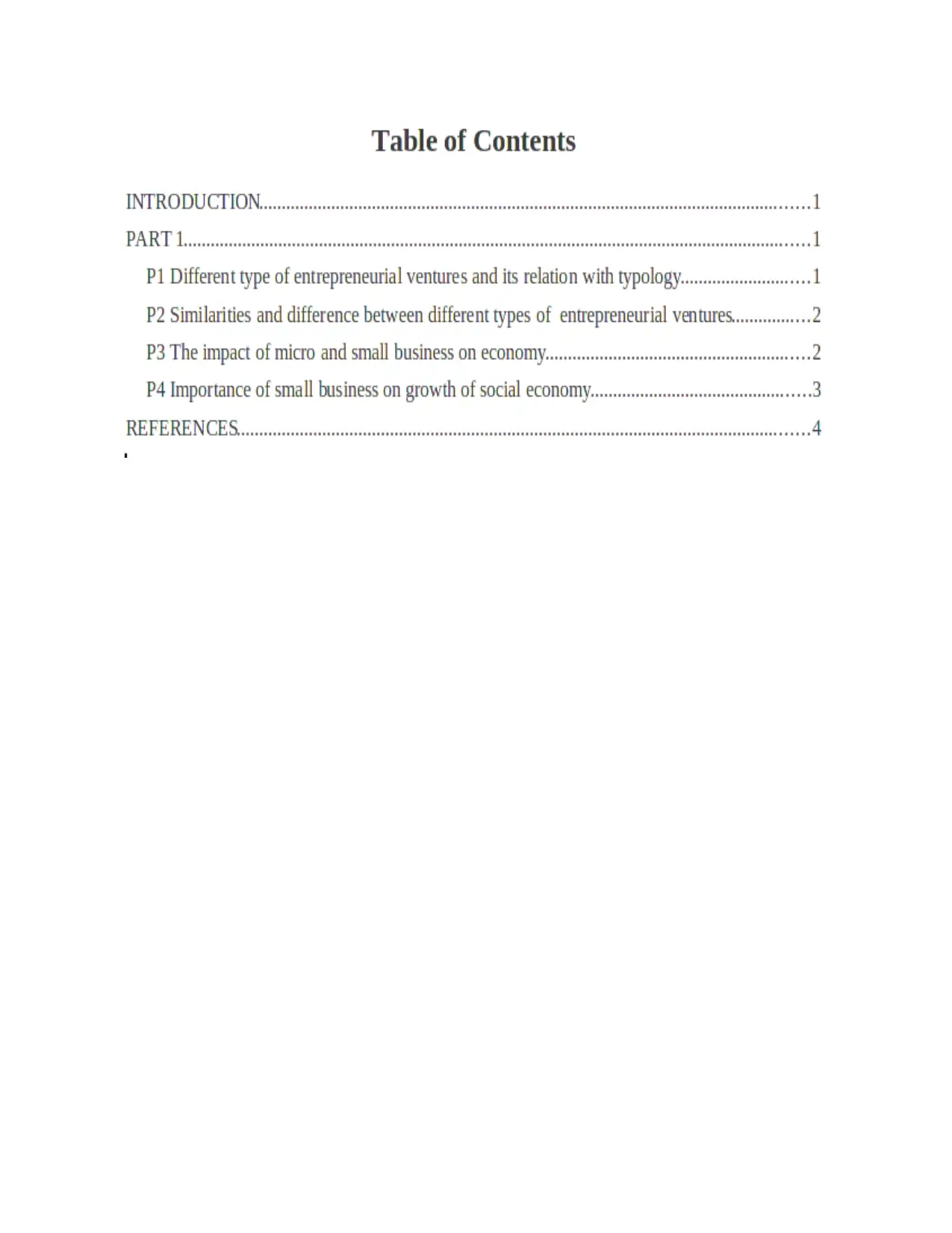
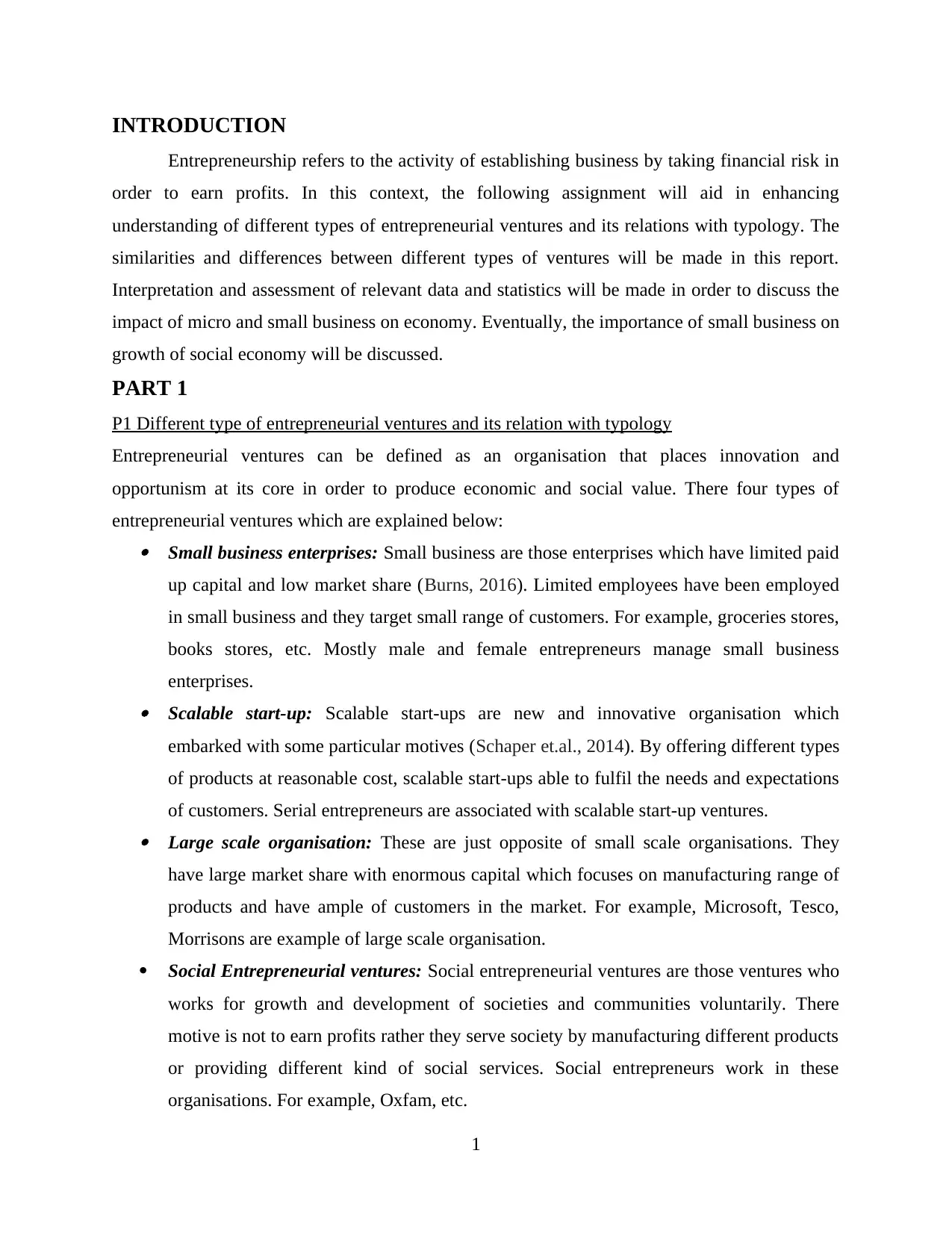

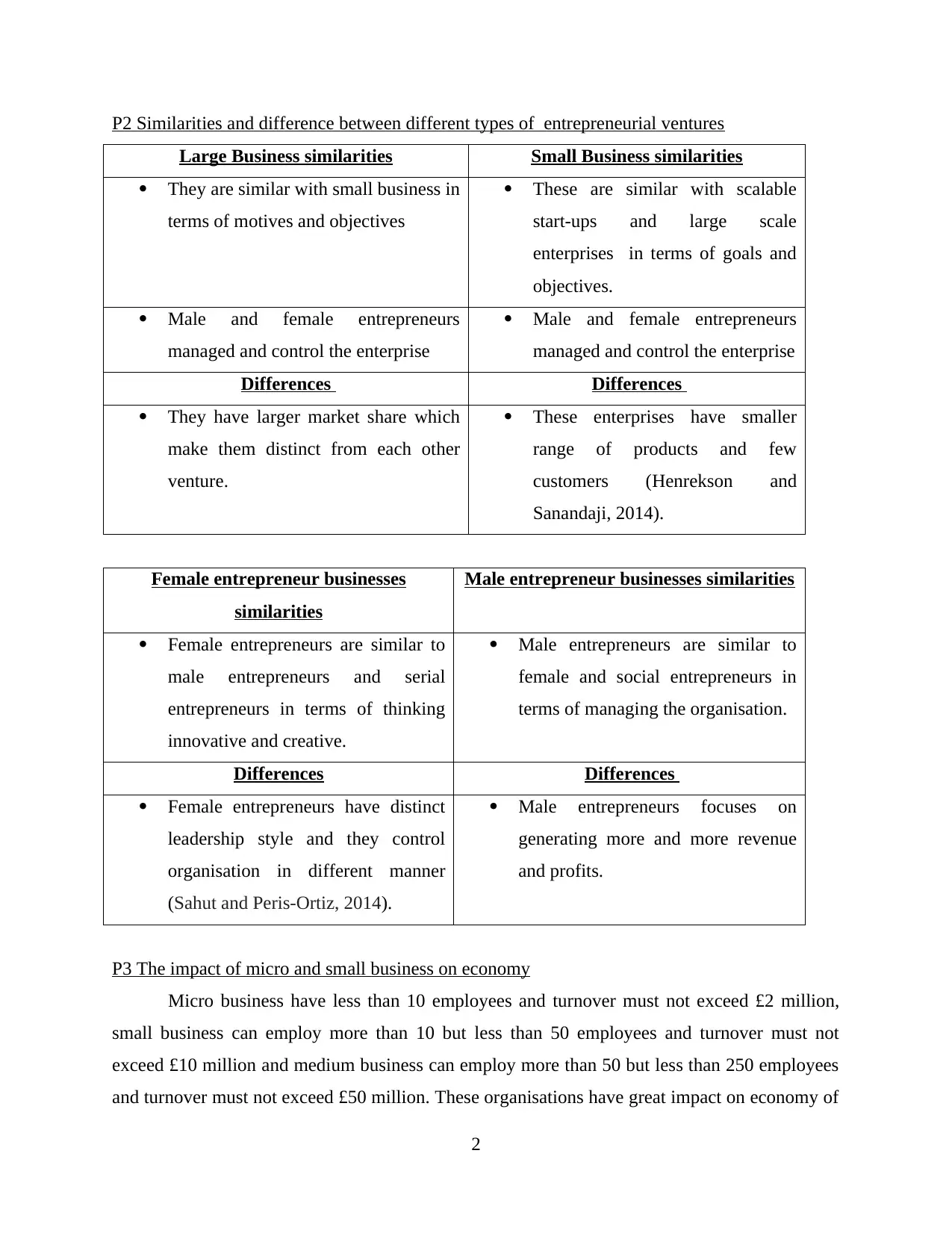
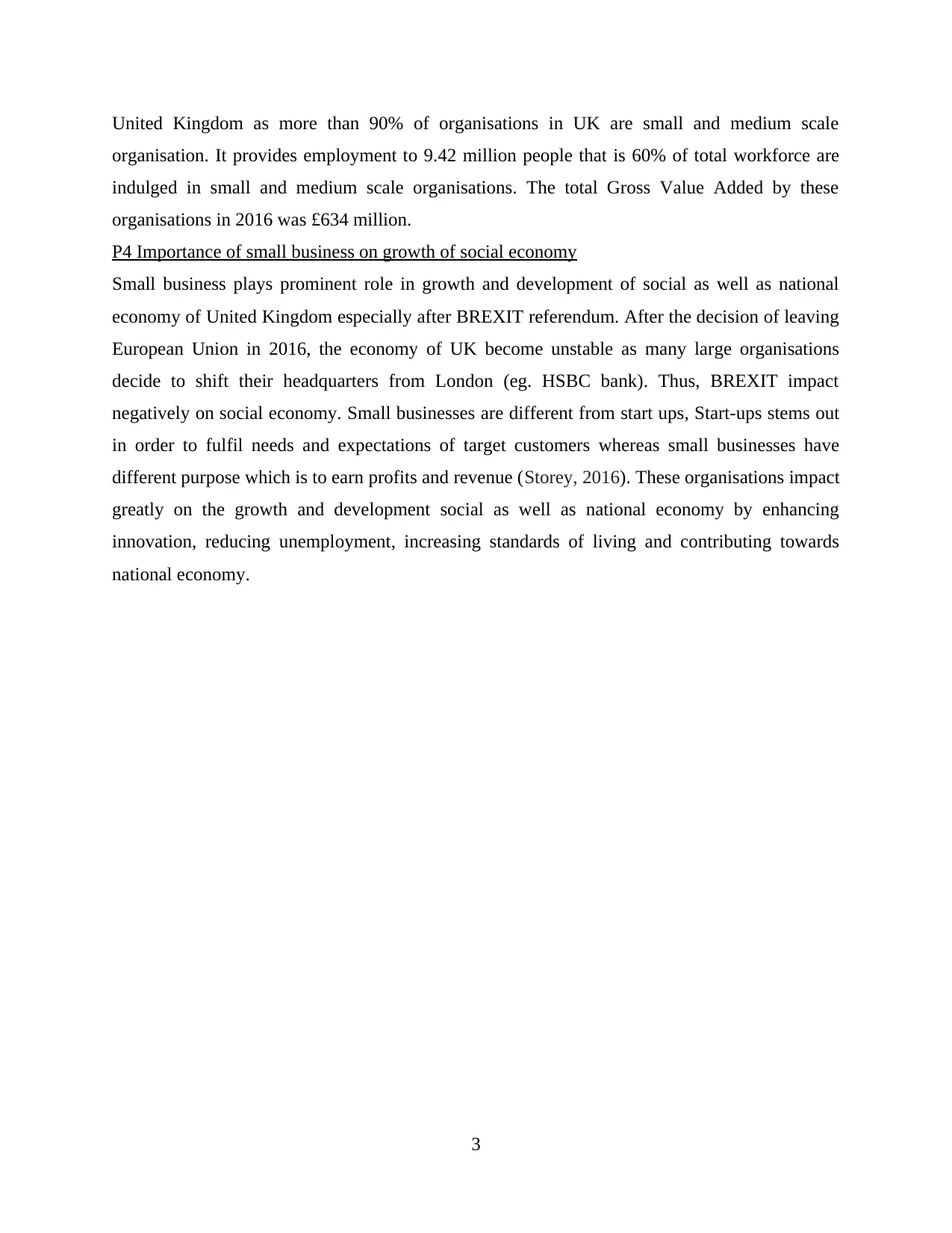
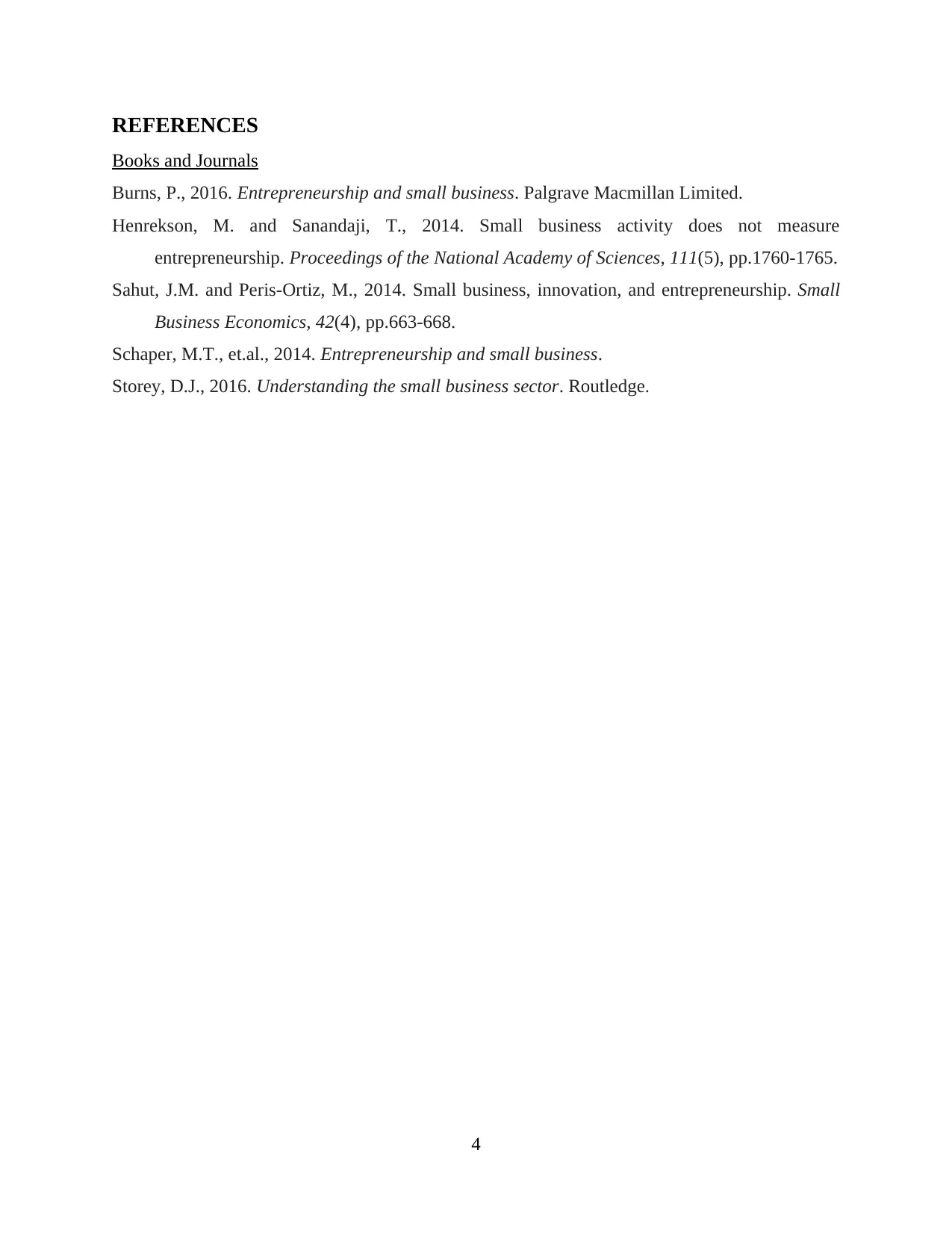




![[object Object]](/_next/static/media/star-bottom.7253800d.svg)